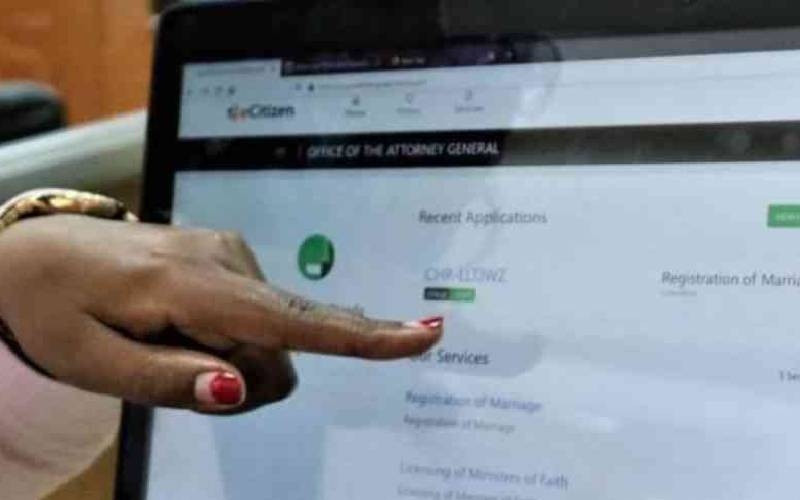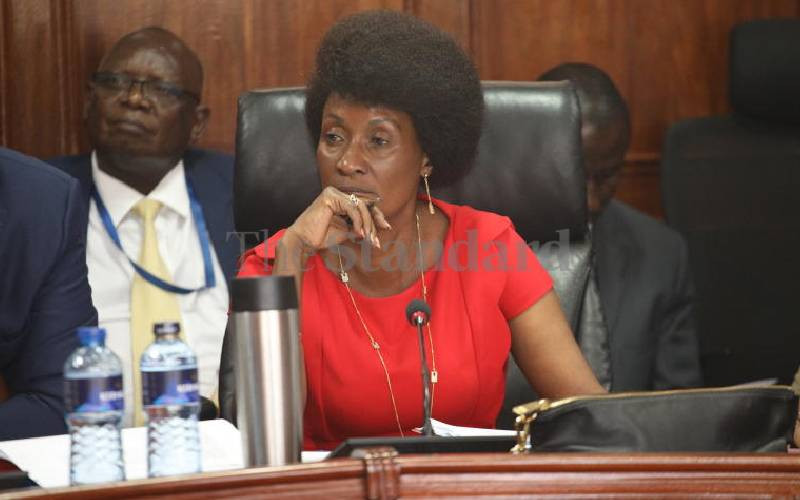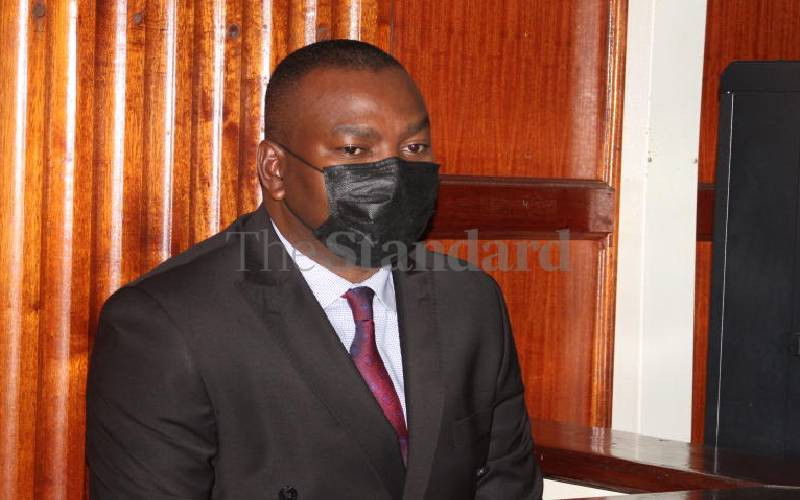 |
|
Education Cabinet Secretary Jacob Kaimenyi. |
By Protus Onyango
Kenya: The government and principals of secondary schools may be committing a crime by charging parents fees for the education of their children.
Parents have been forced to pay through the nose for their children to access secondary education.
This has sparked off a national outcry by parents and other education stakeholders about high school fees increment, which they say needs a quick solution so that children are not locked out of the school system.
The Kenya National Association of Parents is now arguing that parents are being forced to pay fees when the law says that basic education should be free.
The Constitution, in Section 28 (2) defines basic education as that offered and imparted in pre-primary, primary and secondary schools.
The Basic Education Act 2013 which was passed after the promulgation of the new constitution took away from school principals “the executive powers of teachers and principals of handling finances, general administration of schools including discipline and gave them only one duty of ensuring that children attend school freely and report those who don’t attend school”.
The Act also scrapped all forms of cost sharing and even went further to abolish any form of school fees.So, it means that any teacher who asks a student to pay fees is committing a crime.
But even with arguments by schools that they cannot operate without charging fees, it turns out that most of them are asking for hundreds of times more than the legal limit.
Following findings by a task force on secondary education headed by Dr Eddah Gachukia in 2009, the government directed that public boarding schools should not charge more than Sh18, 628. On top of that the schools are supposed to receive Sh10, 265 per child from the government.
Currently, national public schools charge between Sh90, 000 to Sh100, 000 per year as fees minus other requirements like uniform, games, development, construction, bus, trips, and swimming pool fees. The principals demand that 50 per cent of the total fees must be paid on the first day the child reports to the school.
This has forced Kenya National Association of Parents has now gone to court to seek a constitutional interpretation of the education law.
Petition number 10 of 2014 in the Constitutional Court seeks to nullify payment of fees and the grading of learners.
“Under the law that took effect last year, all children must be given compulsory free education from pre-school to high school,” Knap’s chairman Musau Ndunda says.
He added, “We moved to court to challenge what is happening now and we pray that once our case is determined, head teachers who have been forcing parents to pay fees will refund the money and be prosecuted for breaking the law.”
Stay informed. Subscribe to our newsletter
He says, even now, public secondary schools should not charge more than Sh18, 435 for boarding and Sh3, 600 for day schools, according to the Government’s fees guidelines.
A parent who took his son to Mang’u High School last year paid Sh93, 000 as fees. “I then spent Sh30, 000 to buy uniform from a specific shop recommended by the school and other requirements,” the parent said.
The situation is the same at Lenana and other national schools.
At Kamusinga Boys High School in Bungoma County and Kakamega Boys High School in Kakamega County, parents are paying Sh102, 000 and Sh94, 000 respectively for their children to join Form One.
The parents do not see the difference between public and private schools.
Booker Academy, a private school in Kakamega County charges form ones Sh119, 000 per year.
Observers now argue the government and the principals may be contravening the law that governs basic education.
According to the Basic Education Act, 2013, (1) The Cabinet Secretary for education is mandated to implement the right of every child to free and compulsory basic education.
“The Cabinet Secretary shall in consultation with the National Education Board and the relevant County Education Board provide for the establishment of pre-primary, primary and secondary schools, mobile schools, and adult and continuing education centres, within a reasonably accessible distance within a county,” the law says.
Section 39 says it is the duty of the Cabinet Secretary to provide free and compulsory basic education to every child and ensure compulsory admission and attendance of children of compulsory school age at school or an institution offering basic education.
The law defines basic education as system and structure that includes pre-primary education, primary education, secondary education and middle level institutions of education.
It defines a child as a person from the age of one day to 18 years.
Section 29 (1) of the Act reads, “No public school shall charge or cause any parent or, guardian to pay tuition fees for or on behalf of any pupil in the school. Notwithstanding subsection (1) tuition fees may be payable by persons who are not Kenyan citizens and other charges may be imposed at a public school with the approval of the Cabinet Secretary in consultation with the county education board provided that no child shall be refused to attend school because of failure to pay such charges.”
Section 32 states, “No person shall, while admitting a child to a public school or a basic education institution collect any admission fee.”
Now parents who are not able to pay the fees are worried that they may end up in jail for not taking their children to school. According to the Act, basic education comprises of compulsory primary and secondary education.
The Act says that it is the duty of parents and guardians to ensure that the child attends regularly as a pupil at a school or such other institution as may be authorised and prescribed by the Cabinet Secretary for purposes of physical, mental, intellectual or social development of the child.
“A parent who fails to take his or her child to school as required under sub-section (1) commits an offence and shall be liable on conviction to a fine not exceeding Sh100, 000 or to imprisonment for a term not exceeding one year, or both,” a section of the law reads.
The Act gives parents whose children have been denied admission to a public school authority to notify the County Education Board of the decision.
The law also says it is the responsibility of the Government to provide human resource including adequate teaching and non-teaching staff, provide infrastructure including schools, learning and teaching equipment and appropriate financial resources.
The government must also ensure quality basic education conforming to the set standards and norms, provide special education and training facilities for talented and gifted pupils and pupils with disabilities and ensure compulsory admission, attendance and completion of basic education by every pupil.
 The Standard Group Plc is a
multi-media organization with investments in media platforms spanning newspaper
print operations, television, radio broadcasting, digital and online services. The
Standard Group is recognized as a leading multi-media house in Kenya with a key
influence in matters of national and international interest.
The Standard Group Plc is a
multi-media organization with investments in media platforms spanning newspaper
print operations, television, radio broadcasting, digital and online services. The
Standard Group is recognized as a leading multi-media house in Kenya with a key
influence in matters of national and international interest.
 The Standard Group Plc is a
multi-media organization with investments in media platforms spanning newspaper
print operations, television, radio broadcasting, digital and online services. The
Standard Group is recognized as a leading multi-media house in Kenya with a key
influence in matters of national and international interest.
The Standard Group Plc is a
multi-media organization with investments in media platforms spanning newspaper
print operations, television, radio broadcasting, digital and online services. The
Standard Group is recognized as a leading multi-media house in Kenya with a key
influence in matters of national and international interest.










